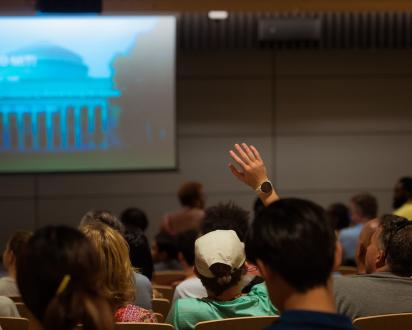Disagreement—whether about the correctness of a theory, the events of history, or the ethics of a policy—is an unavoidable part of living and working in a diverse community. At MIT, disagreement is not only inevitable, but vital. It highlights opportunities to learn new information, share different experiences, or see something from a new perspective.
Learning to disagree well is therefore essential for the pursuit of knowledge and the healthy functioning of society. At MIT, disagreements may be resolved through several practices, which mirror practices of civic engagement in a democracy. The outcome of free expression is not always consensus or a solution, although that can sometimes result from dialogue, disagreement, or demonstrations.
Dialogue
Good dialogue practices help us navigate the full spectrum of interactions. Learn more about listening, de-escalation, and collective accountability.

Disagreeing Well
Learning how to disagree takes practice, and it doesn’t always have to be polarized and adversarial.

Demonstrations
Free expression can be bound by reasonable time, place, and manner conditions.

Violations
MIT has mechanisms to ensure fair and confidential processes regarding the application and enforcement of all of its policies.

